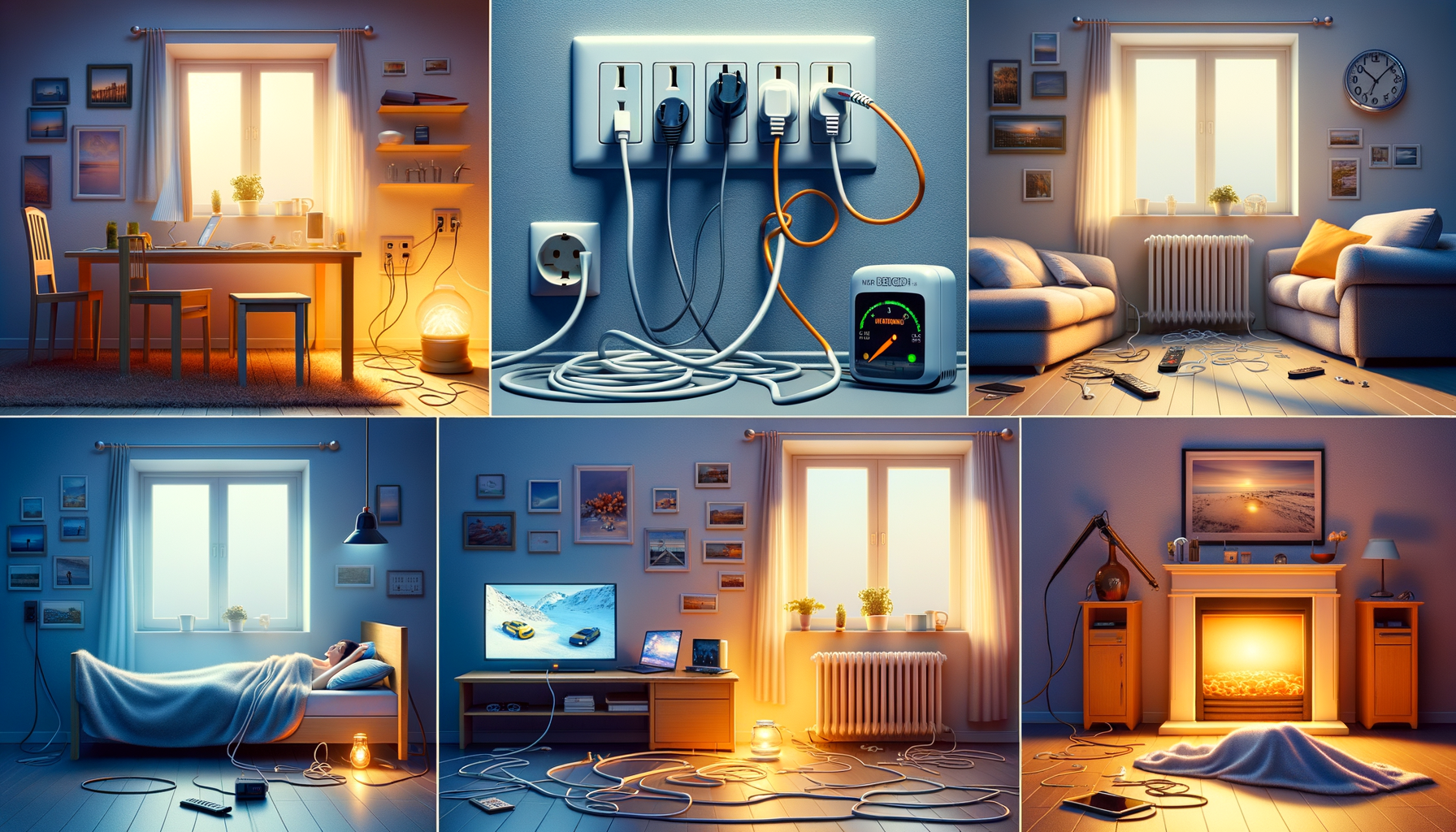
5 Everyday Habits That Quietly Increase Your Electricity Bill
The Hidden Costs of Leaving Electronics Plugged In
In our modern homes, electronics are an integral part of our daily lives. However, leaving devices plugged in when not in use can quietly increase your electricity bill. This phenomenon, often referred to as „phantom load“ or „vampire power,“ occurs when electronics continue to draw power even when turned off. Common culprits include phone chargers, televisions, and microwaves. While each device may only consume a small amount of energy individually, collectively, they can account for up to 10% of your household energy consumption.
To mitigate this, consider the following strategies:
- Unplug electronics when not in use.
- Use power strips to easily switch off multiple devices at once.
- Invest in smart plugs that can be controlled remotely.
By being mindful of these hidden energy users, you can significantly reduce unnecessary electricity usage and lower your monthly bill.
Overusing Heating and Cooling Systems
Heating and cooling systems are essential for maintaining a comfortable home environment, but overuse can lead to skyrocketing electricity bills. During extreme weather conditions, it can be tempting to crank up the heat or air conditioning, but doing so can consume a large amount of energy. On average, heating and cooling account for nearly half of a household’s energy usage.
To optimize energy efficiency, consider these tips:
- Set your thermostat to a moderate temperature and adjust it according to the season.
- Use programmable thermostats to automatically adjust temperatures when you’re not home.
- Ensure your home is well-insulated to prevent heat loss in winter and keep cool air inside during summer.
By implementing these practices, you can maintain comfort while keeping energy costs in check.
Inefficient Lighting Practices
Lighting is another area where everyday habits can quietly increase your electricity bill. Traditional incandescent bulbs consume more energy compared to modern alternatives like LED or CFL bulbs. Moreover, leaving lights on in unoccupied rooms contributes to unnecessary energy consumption.
Here are some ways to enhance lighting efficiency:
- Switch to energy-efficient LED or CFL bulbs, which use up to 80% less energy.
- Install motion sensors or timers in frequently used areas to automatically turn off lights when not needed.
- Take advantage of natural light during the day by opening curtains or blinds.
These changes not only reduce energy usage but also extend the lifespan of your lighting fixtures.
Ignoring Appliance Maintenance
Appliances such as refrigerators, washing machines, and dishwashers are essential, but neglecting their maintenance can lead to higher energy consumption. Over time, dust and debris can accumulate, causing appliances to work harder and use more electricity to perform their tasks.
To ensure optimal performance, consider these maintenance tips:
- Regularly clean refrigerator coils and ensure proper sealing of doors.
- Descale washing machines and dishwashers to prevent buildup that affects efficiency.
- Schedule routine checks for HVAC systems to ensure they are functioning efficiently.
Proper maintenance not only reduces energy consumption but also extends the lifespan of your appliances.
Excessive Use of Water Heaters
Water heaters are often overlooked contributors to high electricity bills. Keeping the water heater set to a high temperature can lead to excessive energy usage, as the heater works continuously to maintain this temperature. Additionally, long showers and frequent use of hot water for laundry can further increase energy consumption.
Consider these strategies to manage water heater usage:
- Set the water heater thermostat to 120°F (49°C) to balance comfort and efficiency.
- Install low-flow showerheads to reduce hot water usage.
- Wash clothes in cold water when possible to save energy.
By adopting these practices, you can enjoy hot water without significantly impacting your electricity bill.